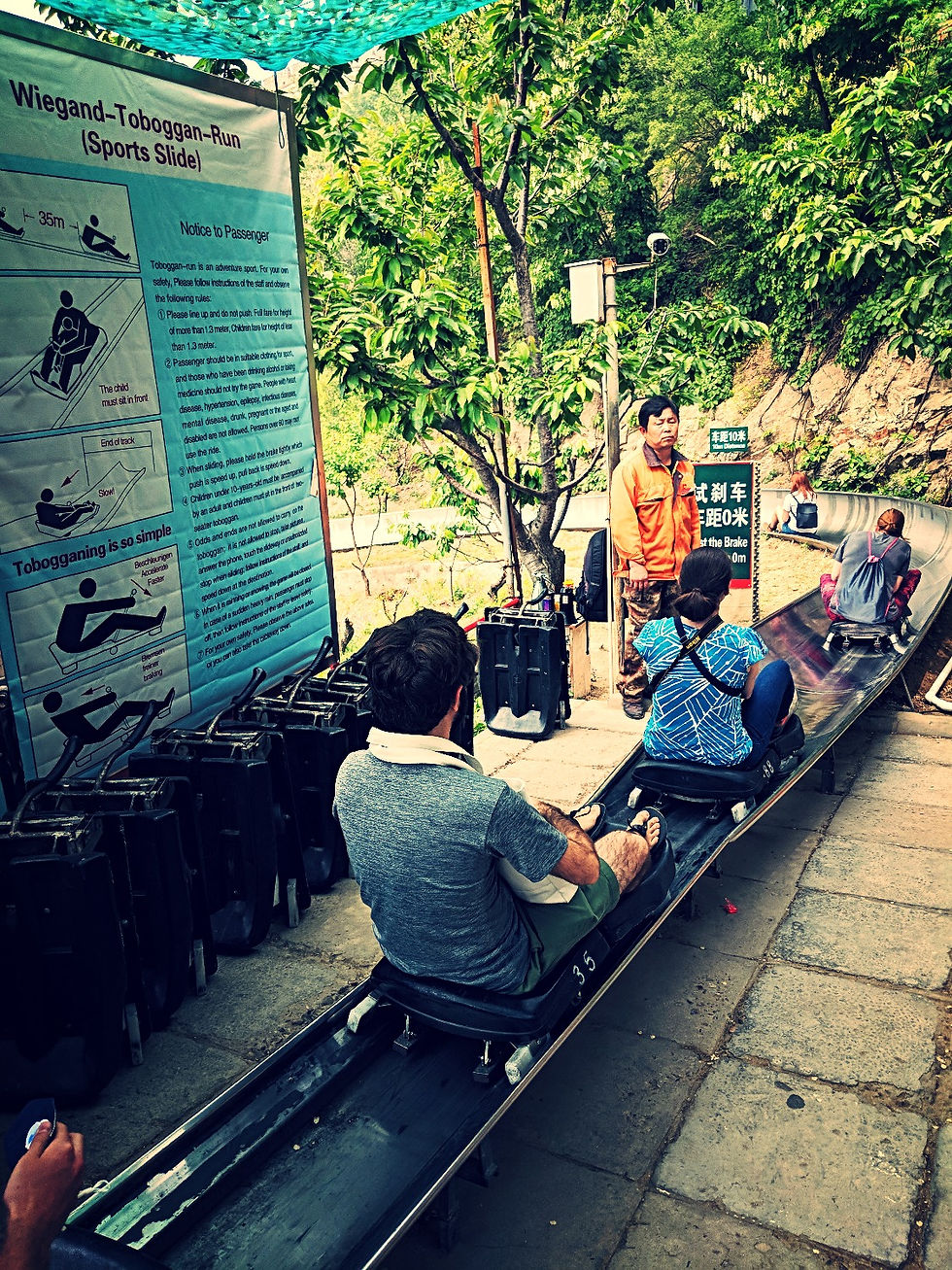Stepping Beyond The Great Wall
- May 15, 2018
- 2 min read
“One does not get lost but loses oneself, with the implication that it is a conscious choice, a chosen surrender, a psychic state achievable through geography” - Rebecca Solnit

I recently read Rebecca Solnit’s A Field Guide to Getting Lost, and her more poignant passages have been coming to mind over the last few days. Prior to arriving in Beijing, I equated China with icons like the Great Wall, yet a change in geography has sparked a transformation of my understanding of this country.

On May 12th, we had the opportunity to visit this icon of China. More specifically, we headed to Mutianyu Great Wall, which is just one section of over 13,000 miles that span across China. En route we heard from three Princeton in Asia Fellows about their placements in Beijing and the application process. The range of projects and language skills varied greatly, but common themes included being able to take an active role in the placement matching process and the importance of being self-sufficient once in-country. We also explored the range of possibilities surrounding our approaching destination. To reach the top of the Great Wall, should we take a round trip gondola ride or a gondola ride up and a toboggan down?

Amazingly, over 10 million people visit the Great Wall each year, yet only 3.6% of the total number of U.S. students studying abroad choose to go to China. What is going on here? Could it be that misconceptions encourage students to overlook China? Earlier in the week during one of our site visits, China was described as paradoxically full of swagger and reticence. Just as we saw but one section of the 13,000 miles that comprise the Great Wall, our brief time in Beijing has only scratched the surface of this country’s complexity. Solnit explains “that thing the nature of which is totally unknown to you is usually what you need to find, and finding it is a matter of getting lost.” Recognizing China’s multi-dimensional nature is the start to that journey.
Our task now is to encourage students to make the conscious choice to step beyond the Great Wall and enter into the unknown, allowing the swagger and reticence of China to be revealed. And towards that aim, perhaps we too should make the choice to become lost (in China), as in Solnit’s words “to be lost is to be fully present, and to be fully present is to be capable of being in uncertainty and mystery.”








Comments